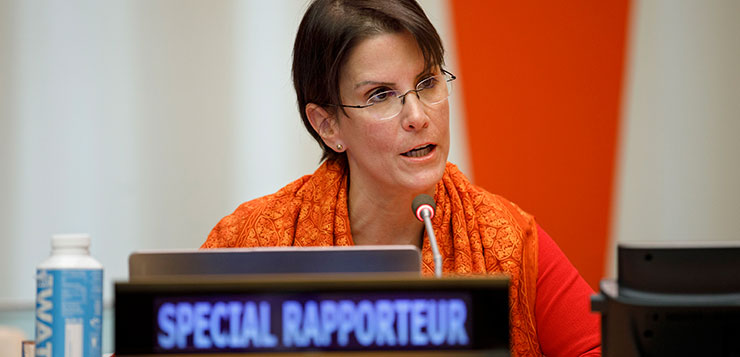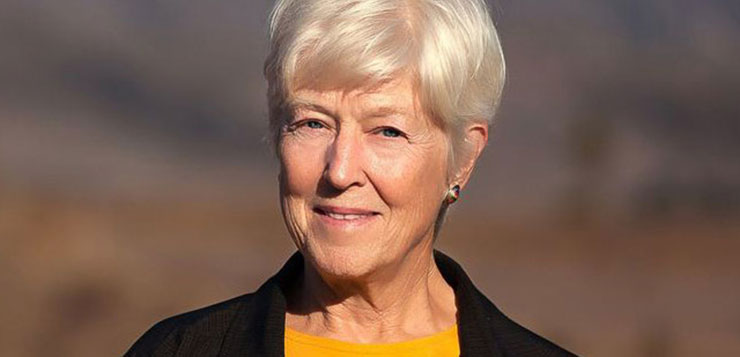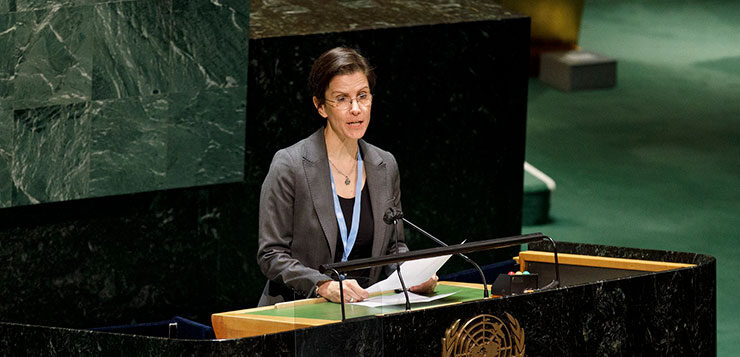Calling prostitution ‘sex work’ doesn’t make it less harmful. Michelle Panayi explains why Australia must take seriously calls from a high-ranking United Nations expert for a rethink on the way we allow society to treat many women and young girls.
A landmark report by the United Nations Special Rapporteur on Violence Against Women and Girls, Reem Alsalem warns against nations becoming ‘pimping States’.
Such States benefit financially from the exploitation and abuse of prostituted women and girls and lead efforts to sanitise and legitimise prostitution through various means including failing to take steps to stem the demand to buy sexual acts or hold sexual act buyers and pimps accountable. Pimping States instead promote the industry and render invisible its inherent exploitation.
Australia must act on this warning given that prostitution is mostly called “sex work” which normalises it, and full decriminalisation or legalisation of prostitution exists in the majority of states and territories.
Furthermore, our federal government, which benefits financially from prostitution, has not made public appeals to them to refrain from this approach as part of a national strategy to end violence against women and children and achieve gender equality but also to uphold our obligations under international human rights law to eliminate prostitution (a form of sex discrimination) and also sex trafficking.
The Special Rapporteur’s report on Prostitution and Violence Against Women and Girls highlights that prostitution is a system of violence which reduces women and girls to commodities and says in effect that all women have a price.
In addition, the report says that payment and/or promise of payment is the most visible sign of a person being purchased rather than freely giving consent, and that many survivors referred to it as “paid rape”.

Furthermore, violence, poverty, manipulation, lack of physical and mental safety, discrimination, and lack of real alternatives serve as coercion. And international law has established the issue of “irrelevance of consent” within the framework of trafficking crimes and the exploitation and prostitution of others.
The Special Rapporteur also highlights that the term “sex work” wrongly depicts prostitution as an activity as dignified and worthy as any other work, fails to take into account the serious human rights violations involved, and “gaslights” victims and their experiences.
Countries that have legalised or fully decriminalised prostitution have, according to the report, increases in the demand for prostitution, recorded higher rates of sex trafficking, violence, abuse and rape and increased prospects for money laundering and drug trafficking. I add that the 2015 NSW parliamentary inquiry into brothel regulation found that a substantial section of the industry had gone underground under full decriminalisation.
The Special Rapporteur rightly asserts that the equal participation of women in society is impossible to achieve when prostitution is normalised as it dehumanises women and girls, and is fundamentally based on unequal power relations between women and men.
Women almost exclusively are the prostituted persons while men almost exclusively the sexual act buyers. Women and girls most at risk of entering prostitution are those facing numerous forms of discrimination and inequalities such as homelessness, poverty, substance abuse, a history of physical and sexual abuse including incest, include migrant women from impoverished and war-torn countries, and indigenous women.
Whilst prostitution itself is a form of violence and violates the right of women and girls to dignity, the Special Rapporteur’s report says it also often constitutes torture, and inhuman and degrading treatment by sexual act buyers who commit rape and other forms of violence including mutilating and burning victims. Prostitution also leads to death threats and femicide.
The report adds that prostitution often results in depression, substance abuse, identification with the aggressor, dissociation, and suicidal ideation, which often lead to suicide. Research has shown that a significantly high percentage of victims also suffer from post-traumatic stress disorder.
Meanwhile, the perceived right of men to purchase a sex act normalizes the violence inflicted on women through prostitution. It also reinforces sexist views including that women are simply receptacles for men’s sexual “needs”. As such there is also a strong correlation between men’s use of prostitution and rape.
We already knew about this correlation prior to this report. And we already knew that prostitution fuels male aggression towards women, narcissism, lack of empathy, the sense of entitlement to women’s bodies, as well as sexism and misogyny.
Clinical psychologist, Dr Melissa Farley highlights in Arrest Histories of Men who Buy Sex, research showing men who buy sexual acts are more likely to commit violence towards women than men who don’t buy sexual acts.

A US study showed rapists were more likely than non-rapists to have a history of having bought sex. In another study among Korean sex offenders, buying sex was positively associated with sex crimes. In a multi-country study of violence against women, prostitution was consistently associated with intimate partner violence and strongly associated with non-partner rape.
Furthermore, Tom Meagher – widower of ABC employee Jill Meagher who was raped and murdered in Melbourne by Adrian Bailey – and who is now a leading advocate against male violence against women, has spoken of prostitution being a culture of misogyny. On his return to Ireland Tom Meagher advocated for the introduction for the feminist Equality model on prostitution saying:
“Many believe that prostitution prevents rape… this feeds into the lie that male sexuality is this uncontrolled force of nature – so therefore needs a constant supply of women to satisfy that man. That also feeds into the lie that men can’t help themselves. It’s a handy excuse for rapists and violent men…. We need to end the lie that this is about sexual freedom or liberation. It’s not liberation, it’s exploitation.’’
It is the Equality or Nordic model as it sometimes called which exists in countries such as Sweden, Iceland, France, Ireland, and Canada, that the Special Rapporteur’s report says should be adopted by all nations.
This holistic model decriminalises prostituted persons and focuses on funding specialist exit programs to help them leave this industry and addresses the underlying causes of prostitution. And it criminalises the sexual act buyers, pimps, and brothel owners.
This approach has improved the situation of persons in or at risk of exploitation, deterred buyers and third parties, and reduced harmful gender stereotypes. In addition, in Sweden (where the model was first introduced and so has existed for the longest period) no murders of prostituted women by pimps or buyers have been reported and in Canada there has been a noticeable drop in the numbers of murders of prostituted women.
The legal obligation under this model to treat prostituted women as victims who have rights and need protection has also led to the expansion of State-sponsored victim-support services, trauma-informed training for law enforcement, and public awareness courses to discourage demand.
I think it is important to remember that this innovative model also requires governments to invest sufficient funding and other resources into it so that it can be effective.
It’s important to also highlight that this model recognises the harms to the partners and daughters of men who buy sexual acts as they too are often traumatised by what these men are doing not only in terms of the betrayal which is abuse, but it also fuels the men’s sexism, misogyny and narcissism and can lead to physical and/or sexual violence against their partners and/or daughters and other forms of violence.
In addition, the Equality model is also extremely compatible with the respectful relationships program in Australian schools and also with men’s behaviour change programs as well as the national action plan to eliminate violence against women and children, unlike other models.
The Special Rapporteur’s report makes numerous other findings and recommendations that States should adopt. This includes that pornography is filmed prostitution and its consumption is linked to male violence against women and children, such as rape. And so countries should criminalise the possession, production, and hosting of it.

Pending the abolition of pornography, a strict age-verification system on all online pornography is to be in place.
It is important to add that implementing a full ban on pornography and ending its consumption is urgent given that women and children are still at high risk of male violence whilst men are able to access it under an age-verification system and that women and girls in pornography are still victims of male violence.
Finally, given that Australia has widely embraced the need to address the underlying causes of crime, it is ironic that most political parties have refused to seek to address the underlying cause of sex trafficking, which is the male demand to buy sexual acts, and thereby call for the adoption of the Equality model.
If they are serious about addressing the underlying causes of gender inequality and male violence against women and children, they would not only endorse the Equality model but also call for a complete ban on pornography.
It is also essential to ban strip clubs which Iceland did back in 2010, as it recognised that they are also a part of patriarchy. They dehumanise women and girls as commodities and sex objects, thus severely compromising the safety and equality of women in them but also women and girls outside of them.
If people can advocate for the need to end industries that seriously harm the environment, then surely, we can end the sex industry that causes serious human rights violations against women and girls.
Donate To New Matilda
New Matilda is a small, independent media outlet. We survive through reader contributions, and never losing a lawsuit. If you got something from this article, giving something back helps us to continue speaking truth to power. Every little bit counts.




